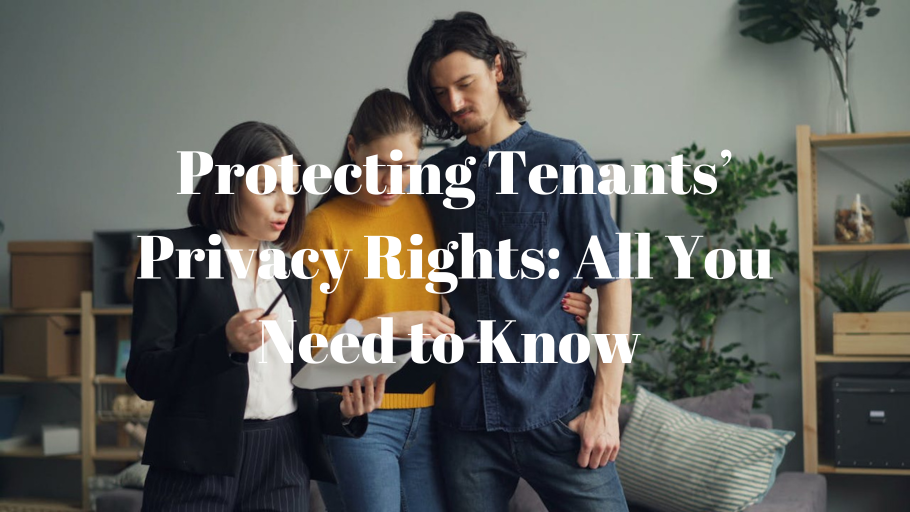Understanding the Fair Housing Act – What You Should Know
No landlord should intentionally discriminate against prospective tenants looking at their rental property. Although, even landlords with good intentions could inadvertently use language that the Department of Housing and Urban Development find discriminatory.
For instance, you could state “Seeking military members to rent” in your rental advertisement. This statement is in violation of the Fair Housing Act. Although you may have just thought you were supporting the troops.
You’d also be violating the Fair Housing Act if you stated “Child-free families only” in your rental listing. You may feel that the neighborhood is not suitable for small children (no schools nearby, playgrounds, or sidewalks), but the fact is, that ‘familial status’ is a fair housing protected class. This means that you cannot use familial status as a qualifying standard when screening tenants.
Essentially, as a landlord, you cannot show preference to one group over another. It’s simply discrimination.
Understandably, fair housing laws can be confusing and often misunderstood. That’s why in today’s article we share with you the most important things you should know about the Fair Housing Act.
What is the Fair Housing Act?
Firstly, the Fair Housing Act was signed into law in April of 1968 by President Lyndon B. Johnson. It’s also known as the Title VIII of the Civil Rights Act. Its signing came just seven days after the assassination of Dr. Martin Luther King, Jr.
The purpose of the FHA was to fight against the then widespread racial discrimination in housing. In simple terms, the Fair Housing Act prohibits discrimination in housing based on 7 protected classes.
These classes are familial status, disability, race, color, sex, religion, color, and national origin.
Local governments may also include other classes in this federally protected group. Examples of additional classes include gender identity, sexual orientation, marital status, military history, and income level.
What type of housing facilities are covered?
The FHA covers all types of housing, whether they are publicly or privately funded. Such facilities include trailer parks, mobile homes, cooperatives, condominiums and any unit designed or used as a residence.
Not all housing facilities are covered, though. Types of housing facilities exempted from the fair housing act are:
- Private clubs
- Hotels and motels
- Single-family housing rented or sold without a real estate agent
- Buildings with four or fewer units (where the landlord occupies one of the units)
Which housing providers are subject to fair housing laws?
- Insurance companies who sell renters or homeowners insurance
- Marketing companies, advertising agencies, and advertising media
- Leasing agents/rental managers
- Investment properties’ owners
- Financial institutions like mortgage brokers, banks, and Savings & Loans associations
- Condominium associations
- Building lots’ owners
- Developers, contractors, and builders
- Real estate agents, brokers, and operators
What is the 3-Part goal of the Federal Fair Housing Act?
The Fair Housing Act has a three-part goal system in place. This includes ending discrimination in the areas of:
1. Home Renting and Selling
The goal here is to end discrimination against protected classes in any of the following ways:
- Denying housing or lying about its availability to a prospective renter
- Declining to rent or sell housing, or negotiate for housing
- Establishing different conditions and terms as regards to renting or selling
- Not providing the same housing amenities and accommodations
- Denying the participation in services related to housing like multiple listing services
2. Mortgage Lending
When it comes to mortgage lending, the Fair Housing laws prohibit discrimination in the following areas.
- Refusing certain people based on their characteristics
- Setting conditions and terms that are not uniform for all applicants, such as fees or interest rates
- Making the requirements for loan purchasing different based on certain characteristics
- Refusing to provide information about the loan available
- Using practices that are discriminatory when appraising property
3. Additional Illegal Practices
Additionally, it’s illegal for anyone to:
- Make or advertise any statement that indicates a preference or limitation based on: handicap, familial status, sex, religion, national origin, color, or race. This, of course, applies to owner-occupied and single-family homes that otherwise have Fair Housing Act exemptions.
- Intimidate, coerce, threaten or interfere with anyone exercising a fair housing right or assisting others to exercise that right.
Who enforces the Fair Housing Act?
The federal department that is responsible for enforcing FHA is the U.S Department of Housing and Urban Development (HUD).
The HUD enforces the Fair Housing Act through:
- Fair Housing Testers: Fair housing testers are specially trained to pose as renters or buyers. They are critical in uncovering patterns of different treatment by housing providers. Many are civic-minded volunteers, although most are paid on a per test basis.
- Investigate Discrimination Claims: Any person who feels discriminated based on their characteristics can file a discrimination claim with HUD. After the claim is submitted, HUD will then carry out its investigation to establish whether or not the housing discrimination laws have been breached. If any merit to the claims is found, HUD will decide which legal action to take.
How do I prevent fair housing discrimination?
As a landlord, complying with the Federal Fair Housing Act is key to a successful rental business. The following are 2 important tips to help you with this
- Ensure your rental ads are free from discriminatory statements. When drafting a rental ad, avoid describing your ideal renter. Rather, you want to use the ad to describe the property. This way, you’ll avoid potentially controversial statements like children, mature, married, single, church and so on.
- Make sure your tenant screening process is fair. Ask the same questions to all prospective tenants. Also, make sure that the questions comply with the fair housing act regulations. For example, don’t ask where the tenant is from. Remember, national origin is a federally protected class.
The last thing you want as a landlord is fighting a discrimination lawsuit in court. It cannot only be expensive and time-consuming but can also negatively affect your career. Hopefully, this article has provided you with some important insights on this confusing and often misunderstood topic.











